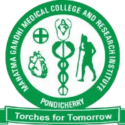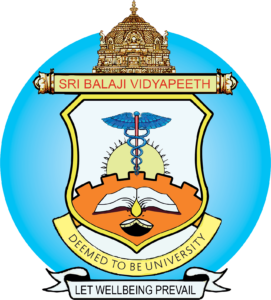Physiology






Courses
Undergraduate
Department of Physiology offers undergraduate teaching for Medical, Dental, Physiotherapy, Pharmacy, Nursing and Allied Health Sciences Students.
MBBS
The basics of Medical practice and research rests in the knowledge acquired by students in their first year of medical school. Physiology is one of the pillars that help MBBS students to understand functions, inter-relations and regulations of various organ systems which form the foundation in understanding the pathogenesis, prevention and treatment of diseases.
As required by the Competency based Medical Curriculum, MBBS undergraduate teaching involves interactive lectures, small group teaching (SGT), problem-oriented learning, with focus on outcome based training to students. To promote active learning, the students are encouraged to present seminarsparticipate in poster competition. To give a holistic view and promote easy understanding of a topicthe curriculum is horizontally (with preclinical departments) and vertically (with para-clinical and clinical departments) integrated.
BDS
Dental science too demands basic understanding of Human Physiology which is taught to first year BDS students by the faculty of Department of Physiology, MGMCRI. Knowledge of normal functioning and regulatory mechanisms are a must, to have an integrated and holistic approach in providing oral care and treatment.
BPT
Importance of Physiology is no less for a Physiotherapist. The faculty from Physiology conduct regular classes and small group discussions from students on par with their proposed curriculum.
B.Sc (Allied health Sciences)
A general overall knowledge regarding human Physiology is a must for all health care givers. Paramedical courses are functional in the university which includes the following: BSc Nursing, BSc Radiology, BSc Medical Imaging Technology, BSc Anesthesia Technology, BSc optometry, BSc Clinical Research, BSc Physician Assistant, BSc Operation Theatre Technology, BSc Medical Laboratory Technology, BSc Blood Bank Technology, BSc Clinical Nutrition, BSc Urology Technology, BSc Dialysis, BSc Medical Records , BSc Respiratory Technology, BSc Critical Care Technology, BSc Accidental and Emergency Care Technology. Classes are conducted both theory and practical, on a regular basis for the allied health sciences students in their first academic year.
B. Pharm
Physiology as a basic science forms one of the fundamental pillars for students to understand the basic disciplines in Pharmacy. Physiology theory and practical sessions are held for the first year B. Pharm students.
Teaching-learning
Interactive lectures
- The lectures are based on prepared and vetted specific learning objectives (SLOs). Depending on the topic, cases based lectures are also taken to give an early feel of the medical profession. Guest lectures are also organised on a regular basis.
- Small group teaching (SGT) in 8 groups of 31/32 students each is conducted every week to revise and clear doubts of the topics covered during the week.
- The curriculum is horizontally (with preclinical departments) and vertically (with para-clinical and clinical departments) integrated to give a holistic view and promote easy understanding of a topic.
- One (or more) Problem-Oriented Learning (POLs) sessions are conducted in every system in small groups.
- To promote active learning, the students are encouraged to present seminars on varied topics as well as participate in the poster competition. The best seminars and posters are appropriately rewarded.
- The department conducts weekly practicals in small groups (32 students/group). The practicals are aligned with the theory classes which enables the student to inter-connect the theory, practical and clinical aspect of a specific topic.
- For promote active learning and better retention structured revision of practical exercise is conducted at the end of every month.
- To promote research and scientific temper the students are encouraged to undertake Short Term (ICMR-STS) or SBV student projects in their area of interest under the guidance of the faculty of their choice.
Evaluation
- Theory/MCQ based formative assessment is conducted and feedback is given after completion of every system.
- Regular summative assessment grounded on weight and the content-based blueprint is conducted by the department. Feedback is given after each assessment.
- Post validation of examination results is done after every summative assessment to assess and fill the teaching-learning gaps.
Student Support
- Students in Need of Additional Curricular Support (SNACS) are identified after the second formative assessment. Extra classes from 4.00 – 6.00 pm are conducted for such students on a weekly basis.
- Regular assignment and feedback about their performance are given to such students.
- The students are urged to provide their valuable feedback on the curriculum/other teaching exercises. Corrective measures suggested by them are undertaken after due consideration.
- Faculties of the department take part in the institute mentor-mentee system for personal attention to the students.
Competency-Based Post Graduate Curriculum
Postgraduate students are expected to
- Compulsorily attend undergraduate lectures in 1 st year.
- Participate weekly teaching activities for undergraduate practical/tutorials/SGT after 1 st year.
Apart from this, there is a separate timetable for postgraduate practicals, discussions, seminars, journal clubs, microteaching, and visit to clinical departments.
In collaboration with Central Inter-Disciplinary Research Facility (CIDRF) and/or other departments/s the postgraduate students are encouraged to undertake topics of their choice for research. The dissertation work/research conducted by postgraduates is approved only compulsory plagiarism check.
It is mandatory for the postgraduate to participate in CMEs, conferences, and workshops conducted by the department and other departments/s to expose them to cutting edge trends in science and education.
Postgraduates undergo a periodic evaluation and faculty feedback is given on their activities and portfolio maintenance.
Postgraduate
MSc Biochemistry, MSc Microbiology
As part of the curriculum requirements in M.Sc, physiology is taught to students pursuing Masters in Biochemistry and Microbiology in the first year of academics.The importance of physiology as a basic medical science can never be underestimated in these courses.
PG Diploma in Music Therapy and PG Diploma in Yoga Therapy
Students from varied streams pursue their PG Diploma in music therapy/ yoga therapy. To understand the core concept of healing the human mind and body, students in these courses need to understand basic human Physiology in terms of normal functioning and a deviation from the set normal.
M.D (Physiology)
Postgraduate training programmes in Physiology include MD in Physiology which is recognized as faculty of Medicine. As per the competency-based postgraduate curriculum, we provide adequate training to the MD students in academics, research and health care.
Academics
Apart from the regular lectures, postgraduate students are also engaged in self-directed learning in the form of presentations involving postgraduate practicals, PG discussions and seminars and journal club presentations.
Research
In collaboration with Central Inter-Disciplinary Research Facility (CIDRF) and/or other department/the postgraduate students are encouraged to undertake topics of their choice for research. The dissertation work/research conducted by postgraduates is approved only compulsory plagiarism check.
Health care
Visit clinical departments is planned for the postgraduate students to emphasise the importance of applications of physiology laboratory investigations in the understanding of pathogenesis, clinical presentation of diseases and to arrive at the diagnosis, institution of effective treatment and prognostication of the diseases.
Teaching skills
To improve the teaching skills we also conduct microteaching sessions and involve the PG students in teaching undergraduate theory and practical classes.
Miscellaneous
It is mandatory for the postgraduate to participate in CMEs, conferences, and workshops conducted by the department and other departments to expose them to cutting edge trends in science and education.
Postgraduates undergo a periodic evaluation and faculty feedback is given on their activities and e-portfolio is maintained for the same.
PhD (Physiology)
Research activities in any department are solely highlighted by the quality of PhD studies conducted in the department. Physiology department of MGMCRI offers PhD programme as both full-time and part- time. Research works in the field of various streams of Physiology are undertaken in the department. The research advisory committee constituted by both internal and external experts regularly reviews the PhD activities under the headship of the guide allotted to monitor the progress of the research undertaken.
PhD

MD – PHYSIOLOGY

MBBS



